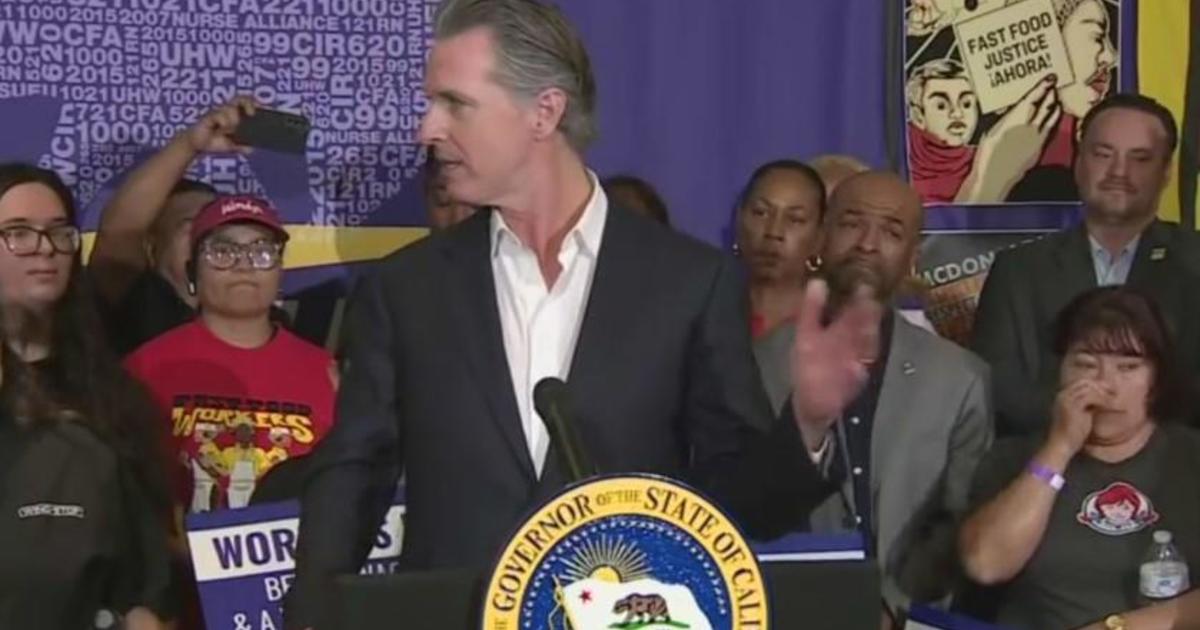- cross-posted to:
- [email protected]
- cross-posted to:
- [email protected]
California fast food workers will be paid at least $20 per hour next year under a new law signed Thursday by Gov. Gavin Newsom.
When it takes effect on April 1, fast food workers in the state will have among the highest minimum wages in the country, according to data compiled by the University of California-Berkeley Center for Labor Research and Education. The state’s minimum wage for all other workers is at $15.50 per hour and is already among the highest in the nation.
Newsom’s signature on Thursday reflects the power and influence of labor unions in the nation’s most populous state, which have worked to organize fast food workers in an attempt to improve their wages and working conditions.



I literally don’t care if something is owned by a small or big business. The obsession of small businesses is absolutely stupid. I only care if prices are low and wages are high. If that means only “big businesses” can provide that because of economies of scale, than good for them, companies should be rewarded for doing that.
If “small businesses” want to compete they should provide equity, there’s literally nothing stopping that from happening.
There’s a local barber shop that I go to and in my province the min wage was increased 50% while the prices have climbed 80% since I started going to them. But guess what, there still the best price/service wise so I go to them. The chains cost more than double plus taxes. And a lot of the local neighboirhood goes to them.
The only business that complain about labour laws especially laws like this that put heavier burden on larger companies are poorly run companies.
I see good business treating people good so when things like this comes up it shows me that business people will always push against progress.
So you’re in favor of monopolization?
If it’s better for customers and workers what’s the problem (from a capitalist perspective)?
Do you want to punish success?
If small businesses become successful and grow do you want to purposefully stop them?
I always ask what is the difference between a small and big business and nobody gives a good answer.
Small business is always used as a shield to attack workers.
Genuinely, if they don’t offer a innovative product, what’s the point of “small business”? What’s the point of a “small business” barber/retail store/grocer/etc. besides better prices?
When does a “small business” become a “big business”? And should we stop that from happening?
It seems to me that “small business” is just entitled people. If those same people became a “big business” they would want to crush their competition (i.e. “small business”) look at Bill Gates/Steve Jobs against IBM.
The only thing that “small business” people want is for them to be the owner of a “big business”. That’s it.
If you actually care about distribution of ownership and wealth. You’d advocate for co-operatives, ESOPs and distributed ownership structures. Otherwise I don’t care.
The issue is that this inevitably leads to monopolization. When a large business is able to keep competitors out of the market, they eventually are able to raise prices without any competition which is drastically worse for consumers. There are many reasons why monopolies have historically been broken by the government and why the government should continue doing so. It’s not for anyone’s best interest other than the shareholders.
How did the big business become a big business?
I have literally seen a small business expand beyond my city and become regional over a couple decades. And probably will try to be national chains.
From a capitalist perspective. What’s bad about monopolization? For big businesses to be big business they need to have success. Why do you want to break success? Why do you want to pick winners and losers?
I don’t believe in any of that. I prefer distributed ownership and benefits.
If the consumers own their own stores through a consumer cooperative than they can set the prices for themselves. And hence don’t need “competition”. And since the shareholders would be the members (i.e. the consumers), in a consumer cooperative, then that means they’ll benefit. No need to have any billionaire tyrant either local nor from a big box store.
From a capitalist perspective, there’s nothing wrong with monopolization. The issue is with the capitalist perspective, itself.
That’s good. I thought I was debating some free market psycho. I think we agree on this.